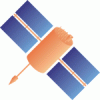- Timestamp:
- Sep 18, 2008, 5:48:23 AM (17 years ago)
- File:
-
- 1 edited
-
trunk/BNS/bnshelp.html (modified) (3 diffs)
Legend:
- Unmodified
- Added
- Removed
-
trunk/BNS/bnshelp.html
r1116 r1120 51 51 </p> 52 52 <p> 53 Note that BNS currently only generates the tentative RTCM Version 3.x message types 4056 for Combined GPS and GLONASS orbit corrections and 4057 for Combined GPS and GLONASS clock corrections to Broadcast Ephemeris.53 Note that BNS currently only generates premature RTCM Version 3.x message types 4056 for Combined GPS and GLONASS orbit corrections and 4057 for Combined GPS and GLONASS clock corrections to Broadcast Ephemeris. 54 54 </p> 55 55 … … 431 431 </li> 432 432 <li> 433 Currently BNS can only generate the tentative RTCM Version 3.x message Type 4056 and 4057 for combined GPS and GLONASS orbit and clock corrections. Note that the length of data fields in these messages is not yet standardized. What's implemented in BNS is just a temporary solution.433 Currently BNS can only generate premature RTCM Version 3.x message Type 4056 and 4057 for combined GPS and GLONASS orbit and clock corrections. Note that the length of data fields in these messages is not yet standardized. What's implemented in BNS is just a temporary solution. 434 434 </li> 435 435 <li> … … 508 508 RTCM Version 3.x has been developed as a better alternative to RTCM Version 2.x. Service providers and vendors have asked for a standard that would be efficient, easy to use, and easily adaptable to new situations. 509 509 </p> 510 RTCM is in the process of developing new Version 3 message types to carry satellite clock and orbit corrections in real-time. Based on the latest available proposal, the following tentative messages currently under discussion of relevance to BNS are listed here:510 RTCM is in the process of developing new Version 3 message types to carry satellite clock and orbit corrections in real-time. Based on the latest available proposal, the following premature messages currently under discussion of relevance to BNS are listed here: 511 511 <p> 512 512 <ul>
Note:
See TracChangeset
for help on using the changeset viewer.
